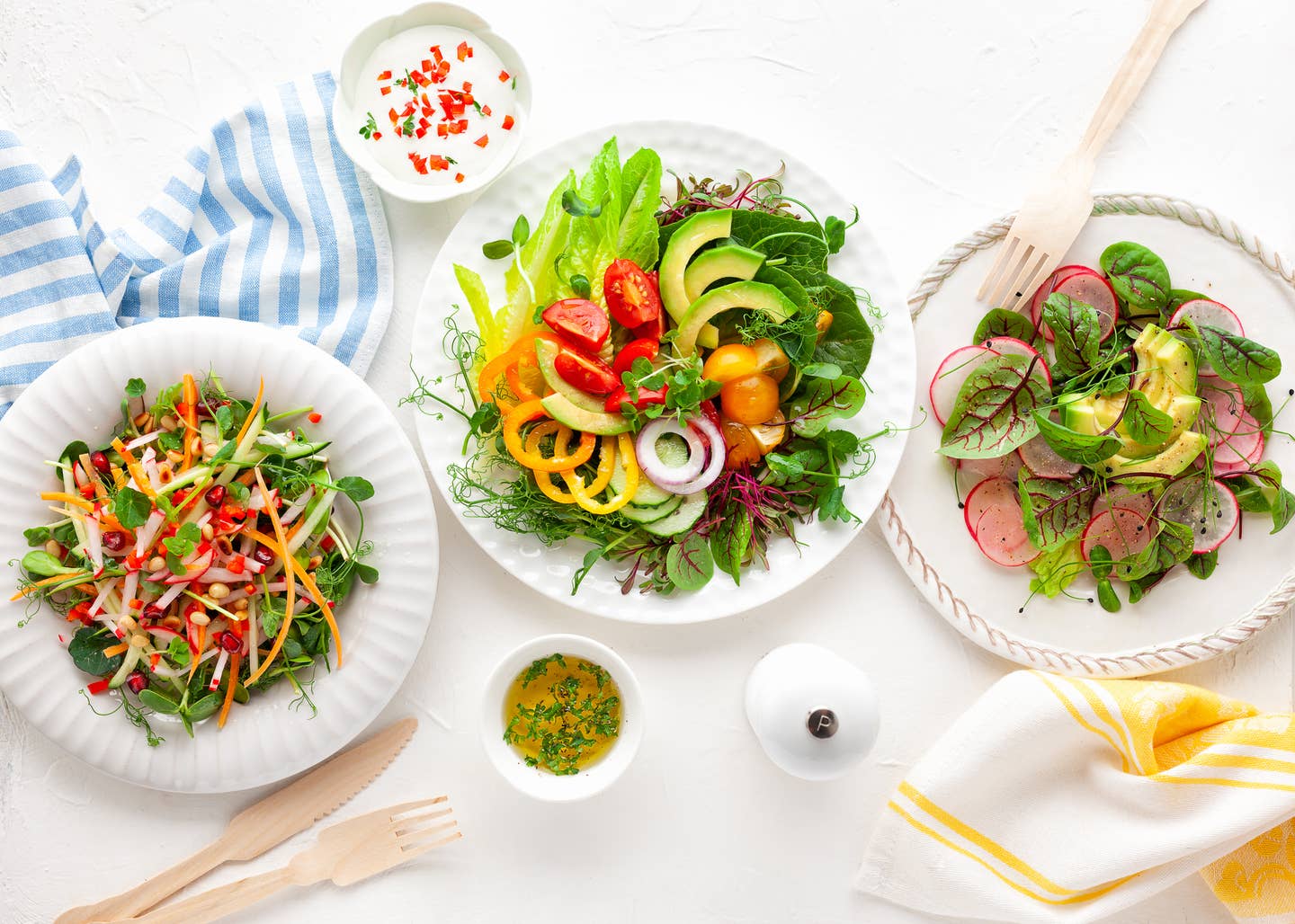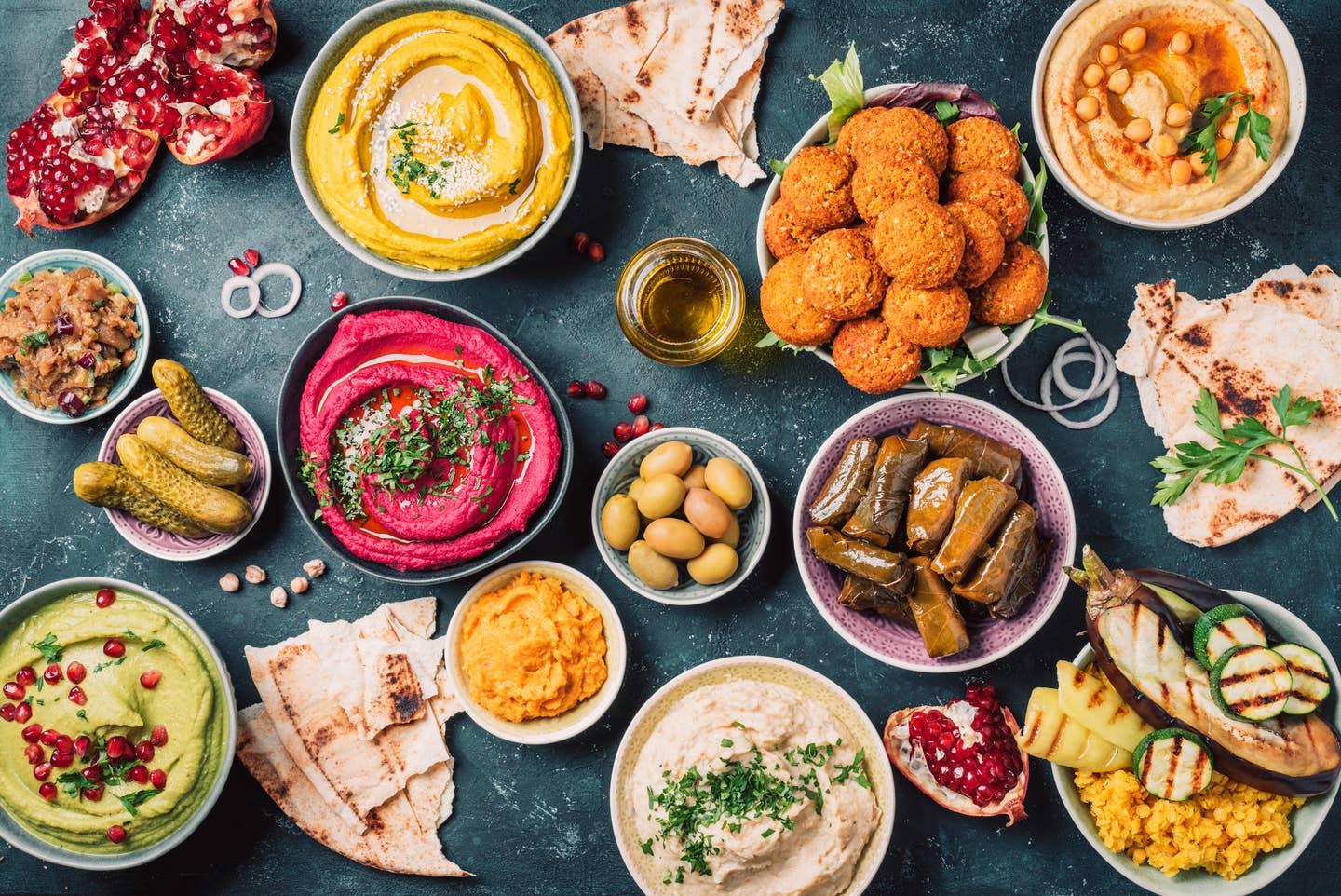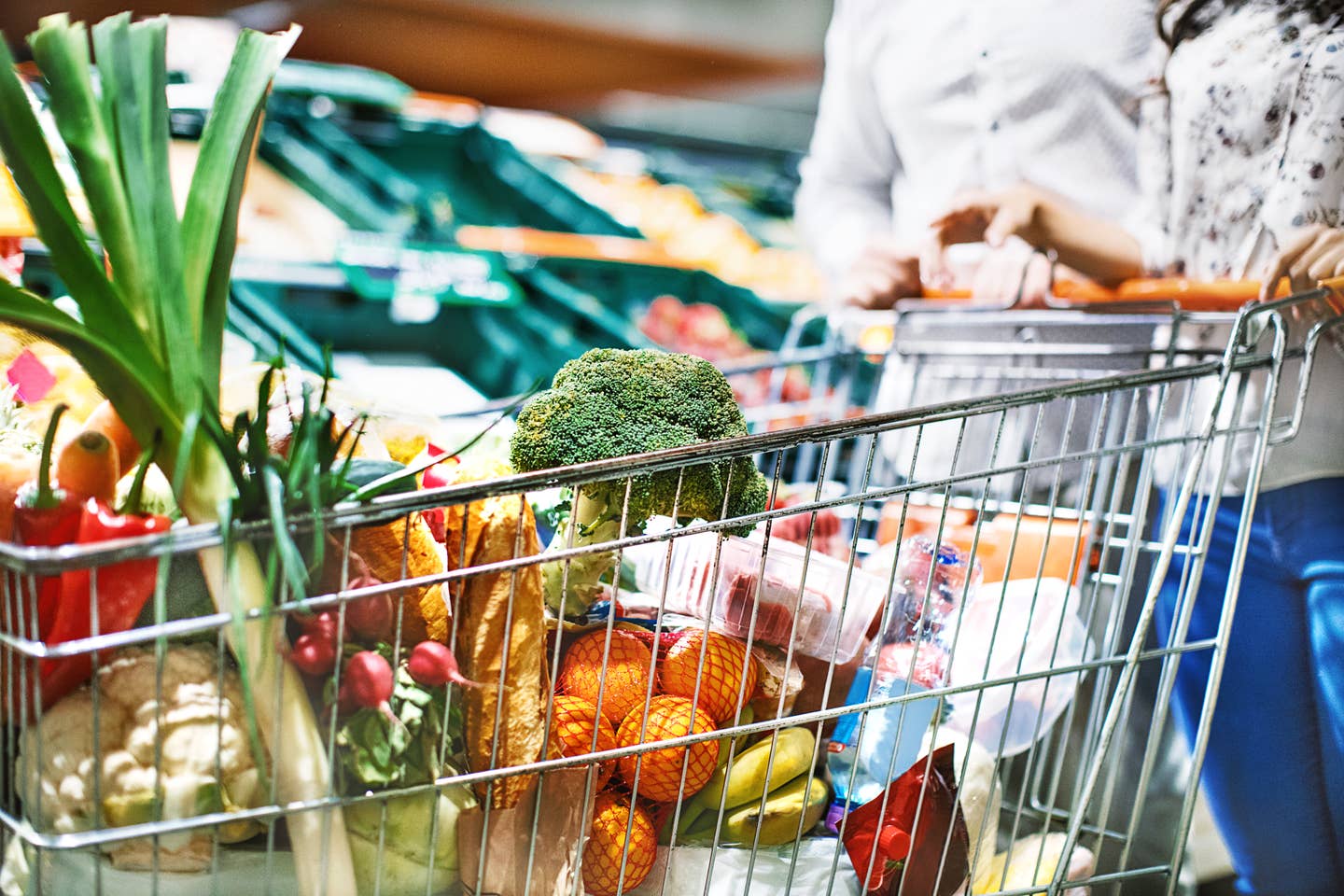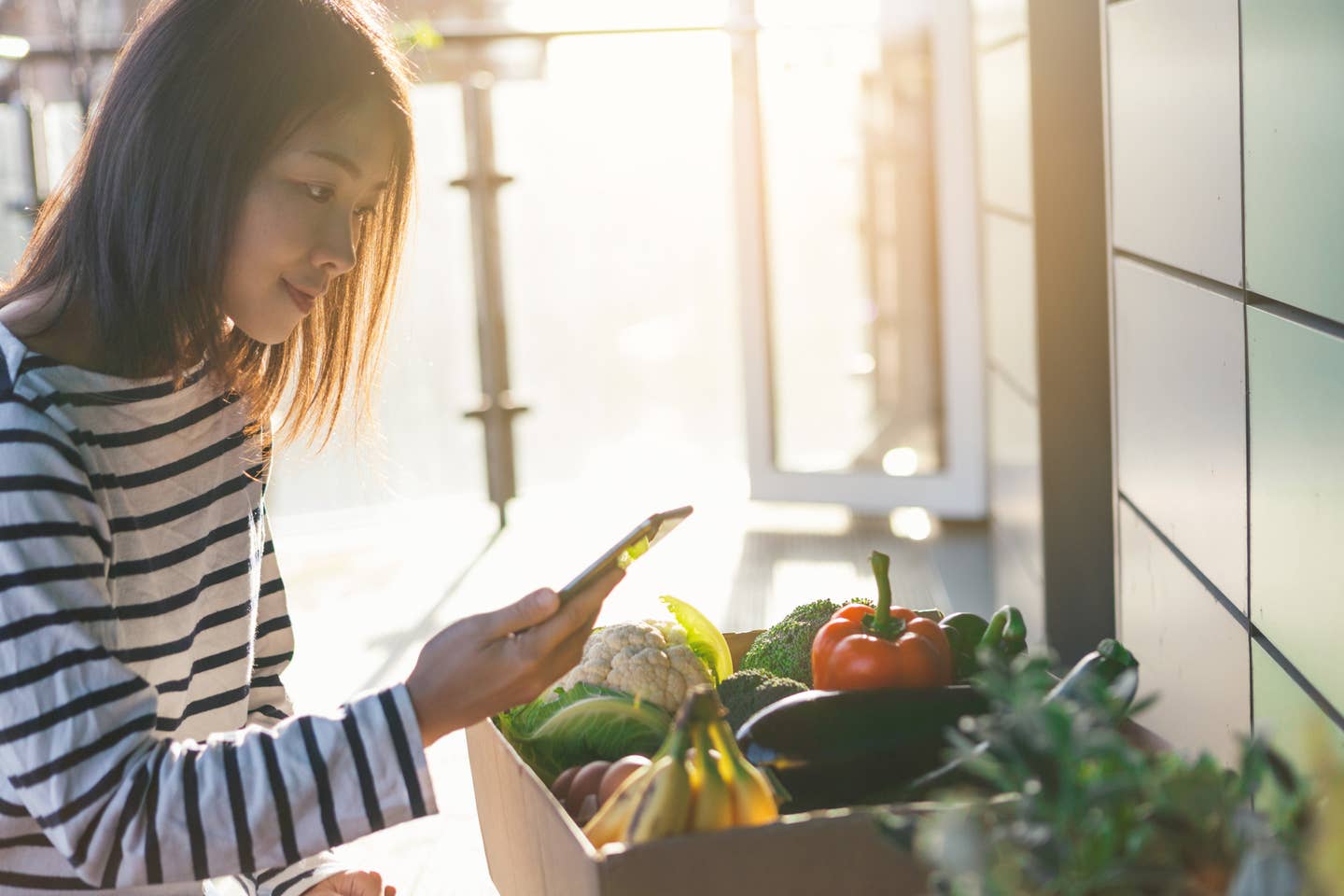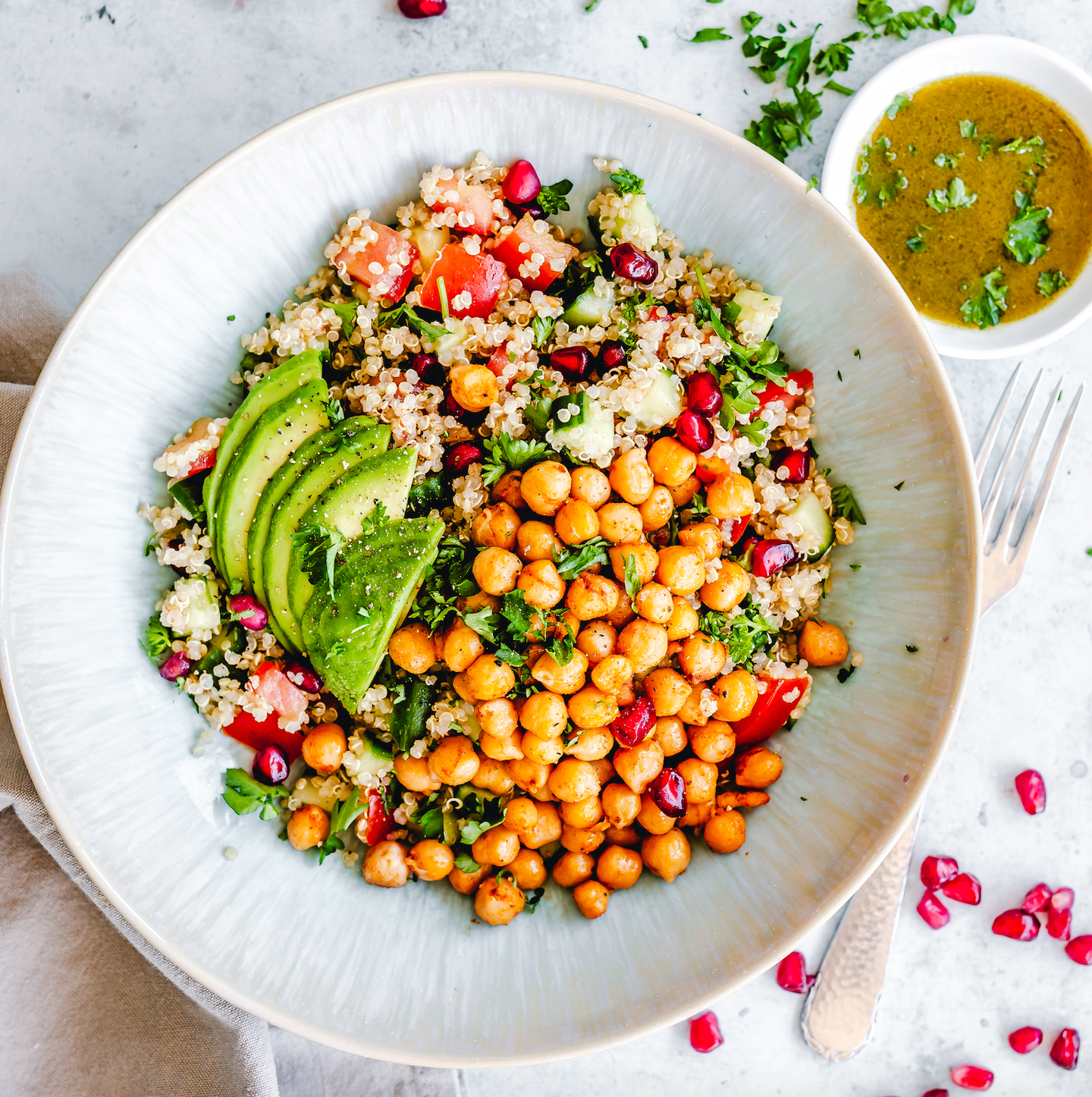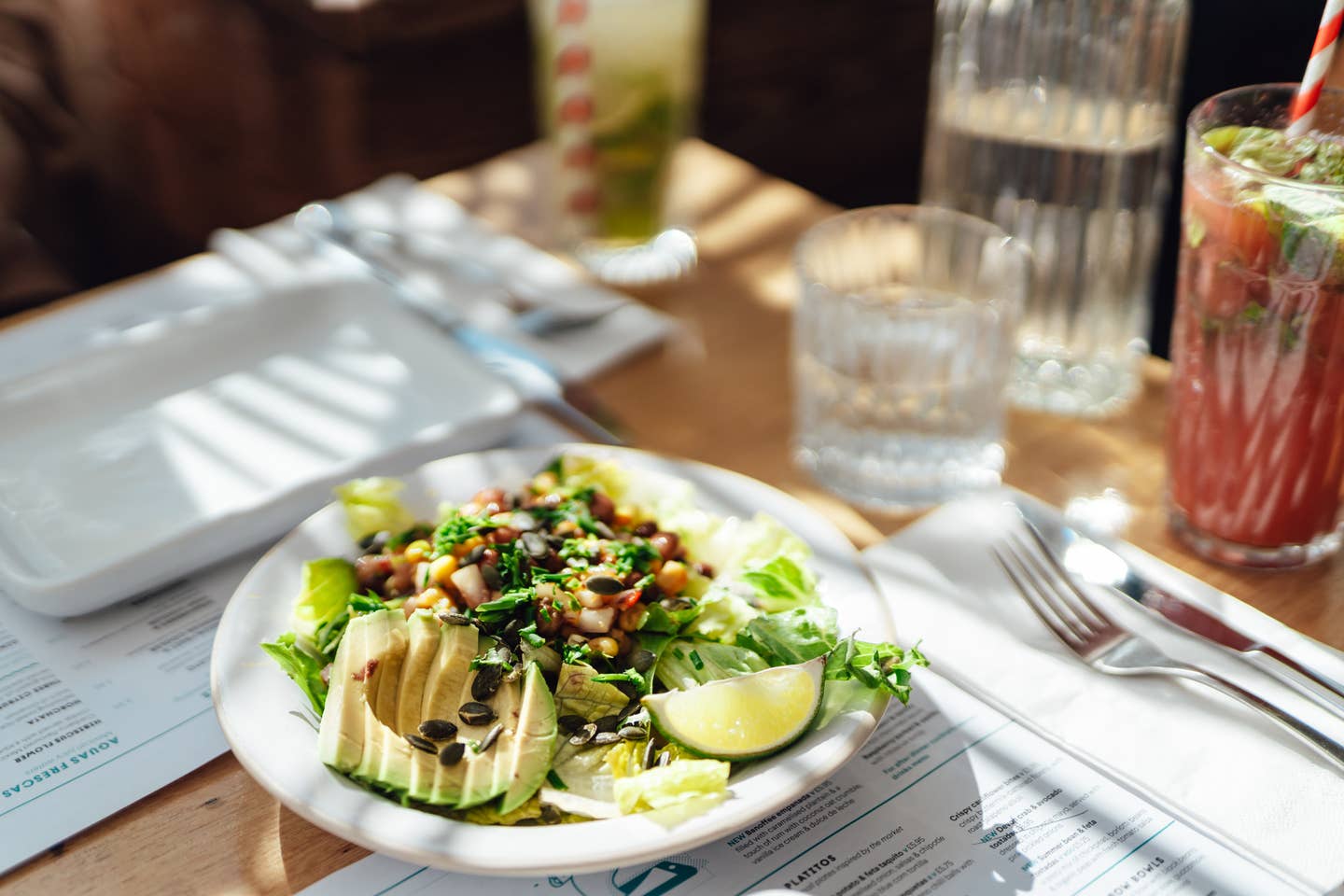
What Not to Do When Giving Up Meat or Going Plant-Based
I read a great article on what "not to do" when going sober. It made me think about all the mistakes I had made when going plant-based. A famous one was my announcing to a table of ten friends out to dinner on the Lower East Side at a French restaurant (high in dairy, meat, cheese, etc): "I'm vegan!" Heads swirled and you would have thought I was a murderer of happy vibes. "You think I'm killing animals by ordering steak?" my college guy pal asked. "No. I don't care what you order but I am eating plant-based," I explained. Already backtracking on the V-word. I was wearing leather shoes, and god knows how many items that would not qualify me as a vegan. (Silk, after all, is made by worms.) Lesson learned: Keep it to yourself.
Here are my tips on how not to go vegan or plant-based or meat-free. When giving up anything, like dairy, meat, or all animal products, you may want to keep it to yourself until you get your footing, manage your own expectations, and avoid the wrath or criticism, judgment or chiding from others, especially those who share their honest feelings with you like siblings or college roommates and others who give you a hard time for challenging the status quo.
5 Things Not to Do When Going Meat-Free or Plant-Based
When I read Ashley McAdams' excellent article, "Getting Sober? What Not to Do," I couldn't help but think: Someone needs to write this type of story for going plant-based! So I decided the parallels to my life were so striking, that I could offer my list of "Going Plant-Based, Here Is What Not to Do," by yours truly.
I have been meat-free for over three years. (Yes, to all of you who have watched my journey and waited for moments when I tripped up, I have done so. I am not always 100 percent plant-based.) But as I have been 95 to 99 percent plant-based, I can share what I have learned. Here it goes.
1. Rely on Fake Meat Substitutes
There's nothing wrong with sampling a Beyond Burger or trying the Daring chicken nuggets that are so real you would be able to fool a toddler. But most of these fake meats are full of fake ingredients to make them taste like real meat.
These meat analogs are highly processed foods. Most have more than ten ingredients on the label including carrageenan, a known inflammatory. Skip them. Instead load up on legumes and hearty salads full of quinoa and chickpeas, peppers, and all sorts of your favorite vegetables like artichoke hearts. You will feel better, be less tired, and your body will get all the nutrients it needs, protein included.
2. Announce that You're Vegan to Your Social Set
As mentioned above, there is nothing more divisive than announcing to a table full of people that you're plant-based, vegan, or giving up meat and dairy. You get pushback from concerned citizens about how you are going to be missing out on protein, calcium, B12, and iron, among other important nutrients. All false. You can get all the protein you need on a plant-based diet.
Deal with your own emotions, your motivations, and your challenges without sharing or polluting your thoughts and reasons with others. They bring their own baggage: Parents who made them clean their plates, eating hangups, and weight challenges. They aren't you, and you aren't them. Just do you.
McAdams points out that alcohol is everywhere. The corollary to that is so is meat. And dairy, cheese, eggs, butter, and animal products – basically food that is highly processed or full of saturated fat and sugar, including dairy, is everywhere too. Walk through an airport, peruse a menu, or check out a deli. Try to find plant-based foods that are minimally processed. It ain't easy. This is why over 60 percent of the calories Americans eat are from junk, according to Mark Bittman.
Once you decide to try to avoid these foods, you are on your own, navigating dinner parties and office lunches, nights out, and breakfast joints full of muffins and egg sandwiches. Know your choices of foods (oatmeal or salads or bean chili or whatever you know you can find in most situations) and make a plan.
When going sober, McAdams soundly advises that you are free to lie about your reasons for not drinking (I am on antibiotics, don't feel well, or am taking a break tonight), and I would agree. There are few places where lying is morally acceptable but one is when you don't feel like defending your position about what you do or don't put into your body. It's no one's business but your own.
If you don't want to get into it, just sidestep it: "I'm allergic to dairy" always works for me. Woe-betide the waiter who tries to sneak butter or cream into my dish. Once I warn them, sternly that I will convulse if fed dairy, they worry I'll go into anaphylactic shock and need an ambulance. "Just make my pasta without cream or butter, please."
3. Assume all your relationships will be the same
You just threw down the gauntlet, like it or not, at family dinners or celebratory gatherings you're not going to eat the birthday cake made with eggs, the pot roast grandma makes, or the marinated steak your brother loves. There will be friction. There may be strong words. You have to be able to soothe things over by saying: I am making new traditions, and I'll bring the dessert (made deliciously with coconut cream or other plant-based substitutes for dairy).
You will see people's true colors. Are they respectful of your decisions? Are they personally affronted (in which case they clearly make everything about them, so that's helpful to know)? There will also be loving friends and relatives who show up for you and your choices and let you know that they are supportive by trying to make a plant-based dish using healthy ingredients.
The most shocking and loving times for me have been when a host or pal decides to go the extra mile and make something I will love and want to eat all the time. A pea soup, created by a chef friend who adapted it from Ina Garten's classic recipe (who adds sausages and uses chicken stock) made with peas, mint, leeks, or scallions, and I ended up further customizing it when I made it at home by adding carrots and potatoes and all sorts of vegetables.
The relationship between me and my thoughtful hostess was strengthened, and our bond continued over email and text, on all the ways we can adapt recipes using vegetable stock (for porcini risotto and other dishes) and try new parmesan cheese made from cashew nuts. The friendship blossomed. For her, it was a way of "exploring a new culinary challenge" and for me, it was a new basis on which to create a friendship. We both grew from this one dish!
4. Change Nothing, and Live the Same Way You Always Did
Okay so perhaps this applies more aptly to the sobriety journey than the meat-free or plant-based journey since I have had friends who when they go sober give up late nights at bars and take up a new passion like running, and they really, really fall in love with running. They go to bed early and join running teams and get super fit and go to far-flung destinations for races. I get that and I love watching that. It's healthy unless you're so obsessed that giving up one addiction for another leaves you depleted, alienated, or injured.
But when you give up meat it is a more subtle journey. It's not like I was socializing at the butcher's store and now go to the farm stand every day. Yet changes do happen. You start to seek out others who value the question of where your food comes from. That inevitably leads you from farmer's markets to reading about climate change and understanding that eventually, for the sake of our survival on the planet, you and everyone you know are going to start eating less meat and more plant-based.
You watch documentaries like Seaspiracy and you care about electing officials for whom climate change and environmental protection are a high priority. I am not saying your journey will be my journey, but you are on a journey and should be open to where it may lead you. It could be a delightful new place full of empathy and understanding, curiosity and learning. That's all good.
5. Go Plant-Baed the Exact Same Way As Everyone Else
What's your style? Are you a joiner or a lone wolf? Are you helped by accountability or want to keep your own counsel? I know my way of doing things (first with determination and grit, then by joining a community once I am no longer an absolute beginner). Everyone is different.
You are your own individual self. If you feel spiritual but don't necessarily go to church, then perhaps you prefer a contemplative walk in the morning to joining a support group. If you gave up alcohol without going to AA, and it worked for you, then you don't have to explain yourself or apologize for your path. The same is true of changing your relationship with food. some people go to WW (formerly Weight Watchers) or use Noom or an app like Lose It to shed unwanted pounds. Others just cut back on their intake and have success.
There is no one "right" way to go plant-based. There is an array of strategies for going plant-based, and you get to choose the one that works for you.
For me, going cold turkey (hate that expression) was easier than phasing it in one food group at a time. But when we ask professionals who are experts in nutrition for advice they often say: First give up meat, then dairy, then poultry, etc. Or they say: Try to eat meat-free on Mondays, then add Tuesdays and so on till you are doing it all or most days of the week.
This is something you get to do your way. If you think that eating animal products is akin to murder, chances are you are not going to stray. (Surveys find that vegans are least likely to cheat on a meat-free approach). If you are doing it mostly for health, then being mostly plant-based may be enough.
Climate-conscious consumers (aka Climatarians) are seeking products and companies that do the least amount of harm. We know that animal agriculture, and factory farming of cows, in particular, are the most costly, in terms of carbon emissions or the equivalent in greenhouse gasses, when it comes to the planet and our climate crisis.
Meat and dairy account for a vast majority of greenhouse gases in the food sector. But packaging and processing foods is no bargain either. Know your "Why," stick to your convictions and act accordingly. When and if you mess up, forgive yourself and get back to it. If you continue to struggle you may wish to re-examine your go-alone approach. But in general, you're the boss of yourself, and you get to decide how this goes. I wish you good luck.
For more stories like this check out The Beet's First Person Success Stories on people who have gone plant-based for health, and it helped them transform their lives for the better.
More From The Beet
